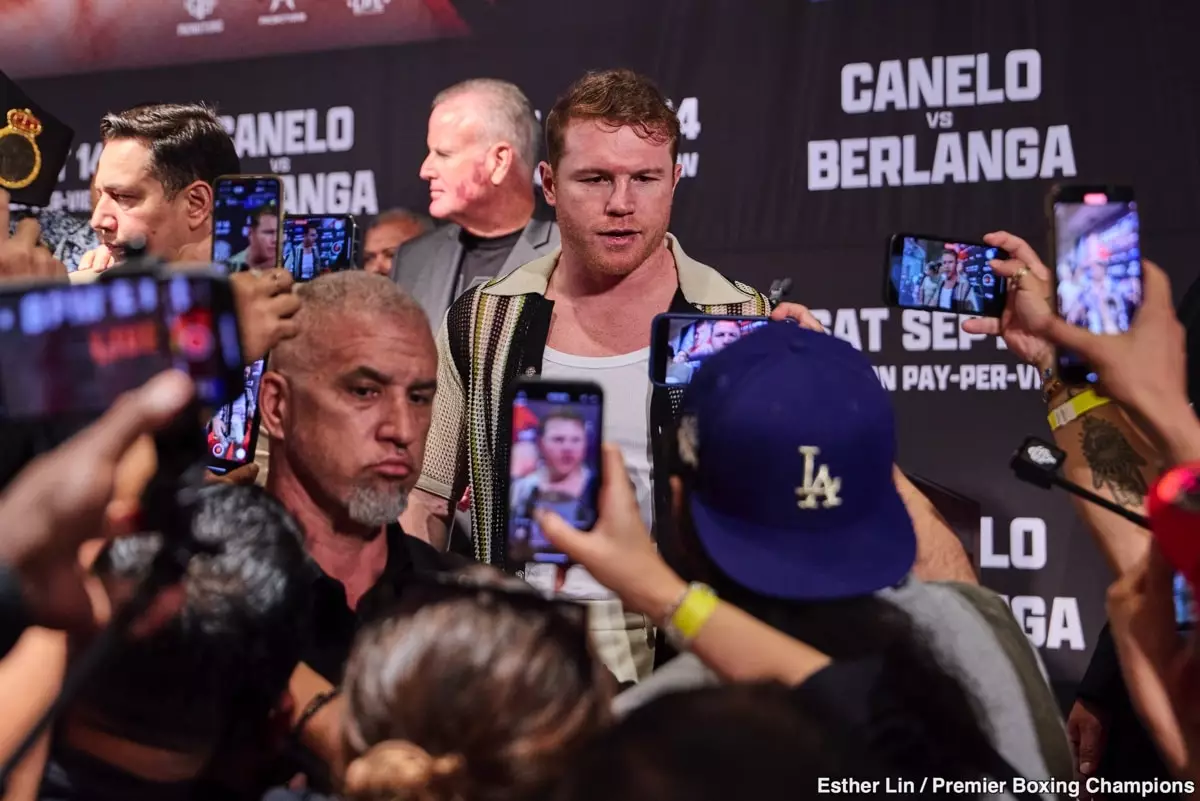In the world of professional boxing, the anticipation surrounding high-stakes fights has always generated fervent debate among fans, analysts, and promoters alike. Recently, Turki Al-Sheikh, a prominent figure in sports management, expressed his reservations regarding a potential bout between Canelo Alvarez and Jake Paul, emphasizing the implications it could have for a future fight with Terence Crawford. Al-Sheikh’s sentiments are not isolated; they reflect a broader concern within the boxing community about the direction in which the sport is heading. Many fans consider Canelo vs. Crawford to be nothing more than a spectacle aimed at generating revenue, rather than a contest of athletic integrity.
Crawford, now approaching the twilight of his career at 38, has struggled to find his footing after moving up in weight classes. His recent performance at 154 pounds left much to be desired, leaving questions about his ability to compete effectively at 168. The idea of Crawford jumping two weight classes for a one-off fight against an elite fighter like Canelo raises eyebrows and casts doubt on the legitimacy of the matchup. While Crawford undoubtedly possesses skill, his viability as a contender seems compromised. If he were to ascend to 168 and prove his capabilities by defeating other fighters in that weight class, he might alleviate concerns surrounding his motivations—primarily financial.
While promoters and fighters chase lucrative contracts with high-profile opponents, many boxing aficionados feel disillusioned by the apparent prioritization of financial gain over competition. Fans yearn for fighters who demonstrate a commitment to the sport, challenging themselves against formidable opponents rather than simply cashing in on last hurrahs. This sentiment is particularly poignant in the case of Canelo Alvarez, whose legacy is on the line with every fight he takes. Staging a bout against a seasoned but aging opponent like Crawford—who many perceive as being more focused on financial opportunities than competitive success—doesn’t align with the ideals of boxing enthusiasts.
Boxing is at a pivotal crossroads, with fans expressing overwhelming preference for more compelling matchups, such as Canelo facing off against David Benavidez or the winner of the Artur Beterbiev vs. Dmitry Bivol rematch. There is an undeniable narrative surrounding Canelo’s legacy, and how he chooses to navigate his future might dictate how he is remembered in the annals of the sport. The notion of facing an opponent perceived to be at the end of his rope adds a layer of skepticism to his decision-making.
Al-Sheikh’s role in the boxing sphere is multifaceted—he recognizes the economic implications of fight promotion but also shows profound respect for the sporting narrative. Canelo’s potential choice to face either Bruno Surace or Jermall Charlo is questionable from a promotional standpoint. While Surace gained attention for his upset victory over Jaime Munguia, his appeal remains largely confined to hardcore boxing enthusiasts. Meanwhile, Jermall Charlo’s inactivity and dwindling interest in the sport do not suggest he would be a worthy challenger for a fighter of Canelo’s caliber.
Al-Sheikh’s focus on establishing a compelling narrative towards the Crawford fight speaks to the broader challenge boxing faces: balancing the realities of commercial viability with the desire for authenticity in matchups. The dialogue surrounding Canelo needing a ‘great fight’ before potentially facing Crawford in September highlights the precarious nature of modern boxing promotion.
As the landscape of boxing continues to evolve, it becomes increasingly essential for stakeholders to prioritize the integrity of the sport alongside profit margins. Fans are keen observers in this journey, and their preferences will ultimately shape the trajectory of fight promotions.
For Canelo Alvarez, aligning his choices with not only financial ambitions but also a commitment to competitive legacy will be crucial. The echoes of overt commercial pursuit could drown out the authentic essence of the sport—a reality that current and future boxers must heed as they navigate their careers. In this era of boxing, where big names often overshadow genuine talent, only time will tell how the landscape shifts and which battles ultimately define the future of the sport.

